My Tam and Ha Anh Tuan: Friendship for more than 2 centuries

2 | 0 Discuss | Share
Van Cao is known as the author of the song "Tien Quan ca" - the official national anthem of the Socialist Republic of Vietnam, and he is also one of the most influential musicians of the New Music. Vietnamese.
Van Cao's real name is Nguyen Van Cao, born on November 15, 1923 in Lach Tray, Hai Phong. Coming from a family of officials, his father was the director of a water factory in Hai Phong.
Due to his family's good conditions, as a child, Van Cao studied at Bonnal primary school, then he studied at Saint Josef seminary - this is also where he began to study music. In 1938, at the age of 15, his family became depressed, Van Cao dropped out of school after finishing his second year of high school. He worked as a telephone operator at the Post Office in Hai Phong, but quit after a month.
In the late 1930s, new Vietnamese music was born. In Hai Phong at that time, there were many pioneering musicians such as Dinh Nhu, Le Thuong, Hoang Quy... Van Cao was fortunate to join Hoang Quy's Dong Vong group along with musicians To Vu and Canh Than. , Do Nhuan... Since then, he has started his career in composing music. It is known that his debut song was Buon Tan Thu, which later became a masterpiece of early neo-music.
Also during his time in Hai Phong, Van Cao became acquainted with Pham Duy - who was a singer in Duc Huy's troupe, also one of the most famous singers of the new music of that time. During his long tours with troupes across the country, it was Pham Duy who helped make Buon Tan Thu popular everywhere.
Later, musician Van Cao thanked his friend when he added the title to this song: Tuong Tien Pham Duy, the traveling singer who spread my sad music everywhere.
The friendship of Van Cao and Pham Duy is famous as a beautiful friendship, which is still recalled by many people with admiration, especially when they still have great respect for each other despite living and serving the two. different modes.
Musician Pham Duy - a rare confidant in music with Van Cao, recorded in his memoirs: "...shorter than me, more closed than me, but Van Cao is much more talented than me. Certainly. When we first met, he didn't dare you - me and me, but I have a habit of talking about the world for a long time, in the end, he also followed me and "scratched the grape". Van Cao has a taciturn nature, doesn't speak much, and when he speaks, his thin hand always dances in front of the audience.
Continue with the "life" story of the late musician. In 1940, Van Cao took a trip to the South. In Hue, Van Cao wrote A Cold Night on the Hue River, which is considered his first poem.
In 1942, the male musician left Hai Phong for Hanoi. He rented a small attic at 171 Mongrant Street (now 45 Nguyen Thuong Hien) and attended the Indochina Fine Arts College.
In 1943 and 1944, Van Cao twice appeared in the Salon Unique exhibition held at Khai Tri Tien Duc's house, Hanoi with oil paintings: Puberty girl, Repentance, midnight. Especially the work The Dance of the Suicides was highly appreciated and shocked public opinion.
At the end of 1944, Van Cao met Vu Quy again - a Viet Minh that he had known before. Vu Quy persuaded him to join the Viet Minh, with the first task of composing a march. It is known that Van Cao accepted, he began composing the song "Tien Quan Ca" for many days in a small attic on Mongrant Street.
Tien Quan Ca was printed on the art page of the Doc Lap newspaper in November 1944. On August 13, 1945, Ho Chi Minh officially approved Tien Quan Ca as the national anthem of the Democratic Republic of Vietnam (now a country). Socialist Republic of Vietnam).
After composing the "famous" song, Van Cao continued to participate in activities in the Viet Minh's Mining team. He writes and is in charge of printing for Phan Chu Trinh, printing books and leaflets. After the August Revolution in 1945, Van Cao worked as a reporter and presented for Lao Dong newspaper.
At the end of 1949, Van Cao stopped working as Van Nghe newspaper, he moved to be in charge of the Vietnam Musicians Union. During this period, he continued to compose a number of other famous songs such as My Village (1947), Day of the Season (1948), Going to Hanoi (1949)... and especially Song Lo Song in 1947. .
In 1952, Van Cao had the opportunity to go to the Soviet Union to study music. After the Geneva Agreement 1954, Van Cao returned to Hanoi, worked for Radio Station, but composed very little.
In July 1958, Van Cao stopped working to study politics. At that time, Van Cao's name almost no longer appeared in art magazines in Hanoi. In the following years, the late musician continued with many works, such as writing music without lyrics for movie stories and plays, decorating stages for troupes, drawing newspaper advertisements, drawing match labels...
At the end of 1975, he wrote The First Spring, but the song was criticized as not following the Party's line, not serving the Revolution, so the newly released music was confiscated. But Vietnamese programs in Moscow still performed the song, and so the First Spring was not forgotten.
In 1981, Vietnam launched a nationwide movement of composing the national anthem, but then the results were not announced and the contest was not repeated. Tien Quan Ca is still the national anthem of Vietnam. Until the late 1980s, thanks to the Doi Moi policy of General Secretary Nguyen Van Linh, the works of Van Cao and other pre-war musicians were performed again.
It can be said that Van Cao is a multi-talented artist, trying his best in all fields: stories, poems, paintings... But people still know more about him as a very talented musician. flower.
Compared to two musicians Pham Duy (with about 1000 songs) and Trinh Cong Son (600 songs), Van Cao composed not much, but his works were well received by the audience because of their romance and value. profound art in each song, music.
Van Cao's musical career is divided into two main areas: love songs and epics. In the first stage of composing, like other pre-war musicians, Van Cao mainly wrote lyrical songs with heavy oriental influences such as "Budden Autumn", "Suoi Mo", "Lonely Thu", Truong Tri, Cung Dan. In the past, Ben Xuan, Thien Thai... were considered "the culmination of romance in Vietnamese music".
With epic songs, even when he was in the Dong Vong group of Hai Phong, Van Cao wrote strong scouting songs. He often used historical themes to express patriotism, such as in the songs Go Dong Da, Ho Pulling Wood Bach Dang Giang... Then in turn, the works Tien Quan Ca, Tien To Hanoi, Thang Long march... was born.
In which Tien Quan Ca became the national anthem of Vietnam and the Song Lo song was commented: "a great work... not inferior to any Western music...", is the highest peak of Vietnamese music. Resistance music in particular, Vietnamese New Music in general and Van Cao is the "father" of Vietnamese epics.
As a talented person, but from his youth, he was a person with a tendency to be closed, contemplative, and rarely revealed himself in public. After the events of Nhan Van - Giai Pham in the late 1950s, when he was criticized by the organization, he tended to live more and more alone, although he always had his family and some close friends. based.
Van Cao's life also has few romantic contacts with women. He once confided in a documentary about himself that, "I am a person who has always failed in love, this failure is because I am not good at how I deal with women. , but with beautiful people I am even more confused, I can never tell people, so I just say it in poetry."
On July 10, 1995, after a period of lung cancer, Van Cao died at Huu Nghi Hospital, Hanoi. At that time, a large number of Vietnamese people mourned the passing of the late musician. To them, he will always be an outstanding artist and a "monument" in the Vietnamese music scene.
Vo Thi Thuy Hien: Grateful for a difficult childhood to be a businesswoman  Thư Kỳ11:20:10 08/06/2023Coming from a sunny and windy land with a difficult family background, having to adventure, Vo Thi Thuy Hien used that as her sole strength to strive to become a successful businessman. That's why, a businesswoman's reflections on gratitude were told in a book...
Thư Kỳ11:20:10 08/06/2023Coming from a sunny and windy land with a difficult family background, having to adventure, Vo Thi Thuy Hien used that as her sole strength to strive to become a successful businessman. That's why, a businesswoman's reflections on gratitude were told in a book...

2 | 0 Discuss | Share
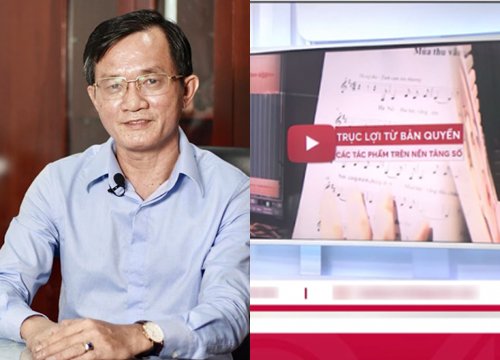
0 | 0 Discuss | Share
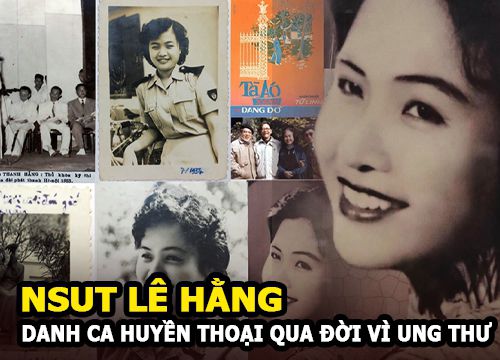
3 | 0 Discuss | Share

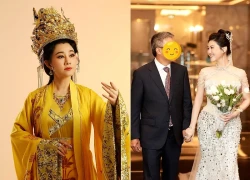
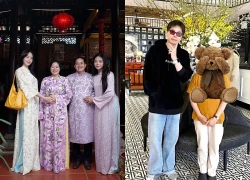
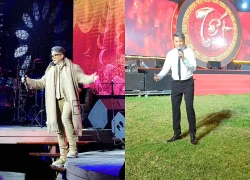



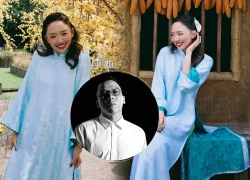

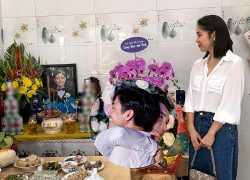
3 | 0 Discuss | Report